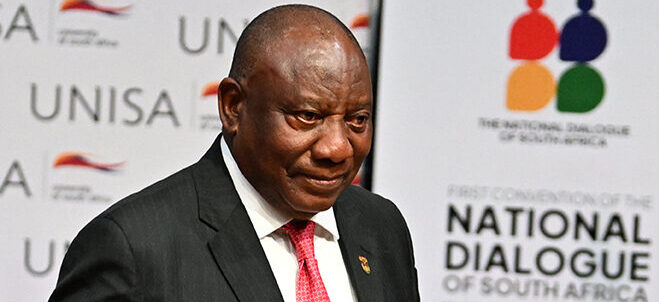The persistent failure of local governments to deliver basic services, such as water, has become a glaring indictment of governance in the North West.
Speaking at a recent meeting between the national executive and the North West provincial executive council in Rustenburg, President Cyril Ramaphosa acknowledged the gravity of the situation.
“No one should go more than a day without running water while there is a deafening silence from the municipal offices about when water will be restored,” Ramaphosa said.
He said the crisis is emblematic of broader systemic and institutional failures that have plagued the province.
Symbol of the dysfunction
Municipalities in the North West have been repeatedly placed under administration due to instability, maladministration, and financial mismanagement.
The most recent example, the Ditsobotla local municipality, has become a symbol of the dysfunction that has eroded public trust in local governance.
“Failure to deliver services is an infringement of the basic rights of citizens,” Ramaphosa said.
The root causes of these failures are multifaceted. Ramaphosa highlighted three persistent challenges that have hindered effective governance and service delivery across the country.
First, the issue of “working in silos” has led to a disjointed approach among national, provincial, and local spheres of government.
Second, the phenomenon of “parachuted development”, where projects are initiated without proper consultation with affected communities, has resulted in poorly planned and executed initiatives.
Third, fiscal constraints, compounded by poor governance, have left many municipalities unable to fund critical projects.
Poverty worsens in North West
The consequences of these systemic issues are stark.
According to the National Treasury’s 2024 provincial socio-economic review, the percentage of people living in poverty in the North West has increased, while the number of households with access to basic services like water has declined.
These statistics point out the importance of reform. However, as Ramaphosa pointed out: “Nothing can excuse poor governance, maladministration, financial mismanagement, wastage, and corruption.”
He said the government’s district development model, introduced in 2019, was designed to address these challenges by fostering greater cooperation among stakeholders and improving project planning and funding.
However, the slow progress has resulted in a significant trust deficit between communities and the government.
“These challenges have contributed to projects not being initiated nor implemented, and when they are implemented, being dogged by huge cost overruns, projects being discontinued, and communities losing interest in development that does not materialise,” Ramaphosa said.
Ramaphosa wants tangible actions
To address these issues, he called for innovative solutions and tangible actions
He said there is a need to unlock blockages in establishing a special economic zone in the Moses Kotane municipality, reintroduce railway routes, and expand airports in Mahikeng and Pilanesberg.
Additionally, he stressed the importance of supporting high-impact infrastructure projects and leveraging the province’s potential in agriculture, tourism, and manufacturing.
He said that while these proposals offer a roadmap for progress, their success will depend on the government’s ability to overcome entrenched inefficiencies and rebuild public trust.
As Ramaphosa concluded: “We were all elected to serve the people and not our own interests.”



